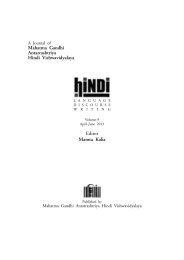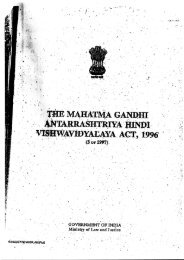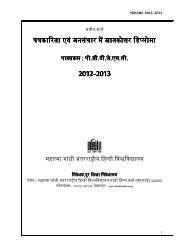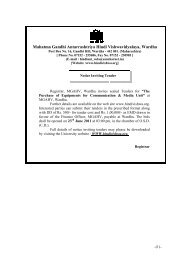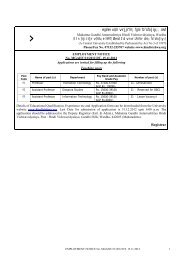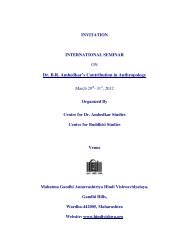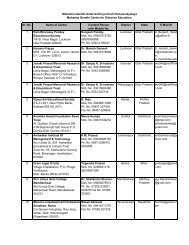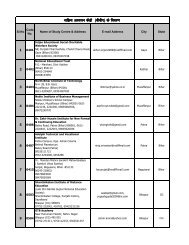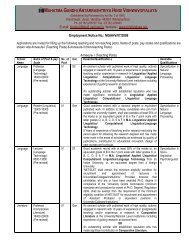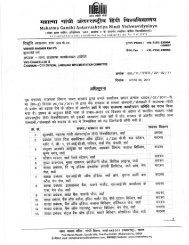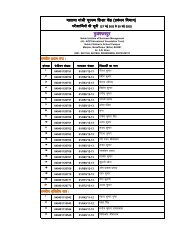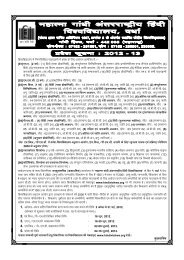Mamta Kalia
Mamta Kalia
Mamta Kalia
You also want an ePaper? Increase the reach of your titles
YUMPU automatically turns print PDFs into web optimized ePapers that Google loves.
communication, labour force, etc. have<br />
become now strongly linked with the<br />
national and international systems, on<br />
the other, its consciousness and<br />
understanding at the popular level and<br />
politics, based on them, instead of<br />
evolving parallely with the developments<br />
at the national and international levels<br />
are regressing into localism. That is to<br />
say, while the physical basis of existence<br />
is becoming increasingly national and<br />
international, this consciousness,<br />
constricting itself in a reverse direction,<br />
is getting localised. What explains this<br />
strange, paradoxical phenomenon? The<br />
intelligentsia has given little thought to<br />
it.<br />
In the colonial period, the two streams<br />
of localism and nationalism supplemented<br />
each other. Why are they emerging<br />
as mutually antagonistic today? And why<br />
is the effervescence of localism providing<br />
strength to obscurantist and revivalist<br />
elements and not to developmentoriented,<br />
progressive forces? This is a<br />
very important but difficult question of<br />
which we have to find an answer. I feel<br />
this regression has some basic sources<br />
and it is the duty of the intelligentsia<br />
to identify these sources and present<br />
them before the people. I feel what Karl<br />
Marx had said about the British regime<br />
in India also provides the key to an<br />
understanding of the present situation.<br />
He had said that after the British invasion<br />
of India, the Indians were in a state<br />
of melancholy and the reason was that<br />
while as a result of the British rule the<br />
40 :: April-June 2010<br />
country’s traditional socio-economic<br />
structure had been destroyed, no new<br />
modern system had come up as its<br />
substitute. The Indians had been faced<br />
with a vacuum which would have to<br />
wait for independence to be filled up.<br />
What happened in the entire country<br />
also happened in our hills. But the hills<br />
had certain geographical attributes which<br />
did not permit the British to bring about<br />
the basic changes here which they had<br />
brought about in the plains. The process<br />
of modernisation here started rapidly<br />
only after independence. Particularly the<br />
changes that took place in the wake of<br />
the India-China tension on the northern<br />
border and the network of roads spread<br />
out in the region for reasons of security,<br />
and, to some extent, of development,<br />
opened Uttarakhand to commercial,<br />
administrative and cultural influences<br />
from outside and deprived it of the<br />
protection its geography had provided<br />
to it. Perhaps, from a long-term point<br />
of view, this end to this isolated existence<br />
and exclusiveness may turn out to be<br />
a boon. From its immediate results, it<br />
has proved to be a curse. The common<br />
people with their simple means of<br />
livelihood, and the educated persons<br />
seeking security in government service<br />
could neither take to new vocations like<br />
truck and bus driving, running hotels<br />
and restaurants, horticulture, dairying,<br />
commercial exploitation of forest<br />
resources, trading etc. in a big way,<br />
nor save their vocations in the case<br />
of competition from more skillful and



